To deepen Sino-Russian cooperation in international Chinese language education, support the development of Chinese language faculties in Russian-speaking regions, and promote high-quality development in Sino-Russian educational collaboration, a delegation led by Chen Chaofeng, Deputy Secretary of the Party Committee and Secretary of the Discipline Inspection Commission of Shenzhen MSU-BIT University (SMBU), visited Russia from July 24 to 28. The visit culminated in the 4th International Chinese Language Education Symposium for Russian-Speaking Regions, as well as a series of exchange activities.
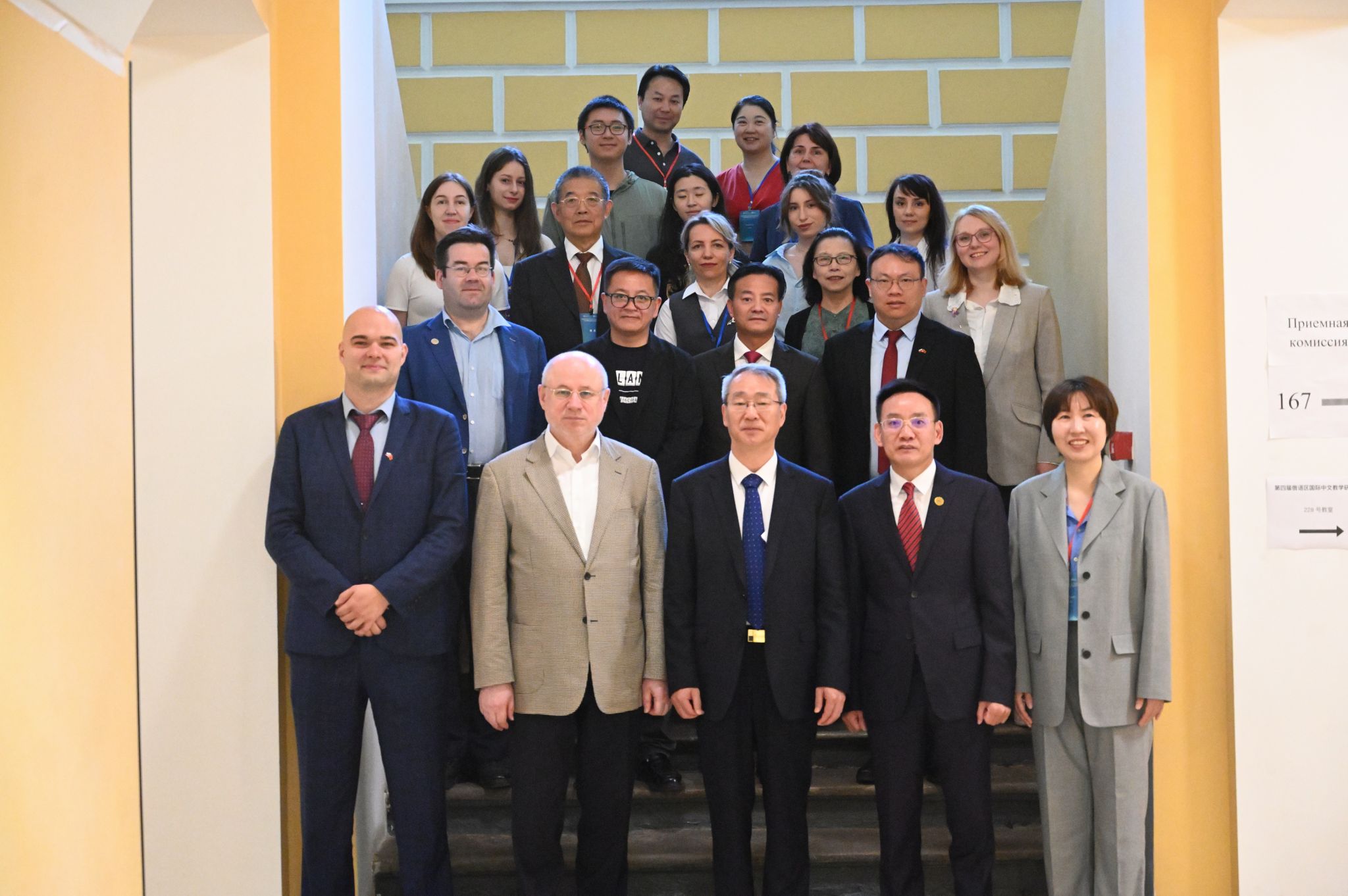
The 4th International Chinese Language Education Symposium for Russian-Speaking Regions was co-hosted by the Center for Chinese Language Studies of SMBU and the Institute of Asian and African Studies (IAAS) at Lomonosov Moscow State University (LMSU), centered on "Localized Development of Chinese Language Education in Russia." The symposium addressed three core topics: teaching methodologies, educational resources, and teacher development. It was structured into keynote speeches and parallel forum discussions delivered through hybrid online/offline formats alongside specialized sessions. The symposium attracted over 50 participants, including practitioners in international Chinese language education from China, Russia, Belarus, and other countries. The formal opening ceremony took place at IAAS, LMSU on July 26. Cao Shihai, Minister-counselor from the Embassy of the People's Republic of China in the Russian Federation, delivered a keynote address.
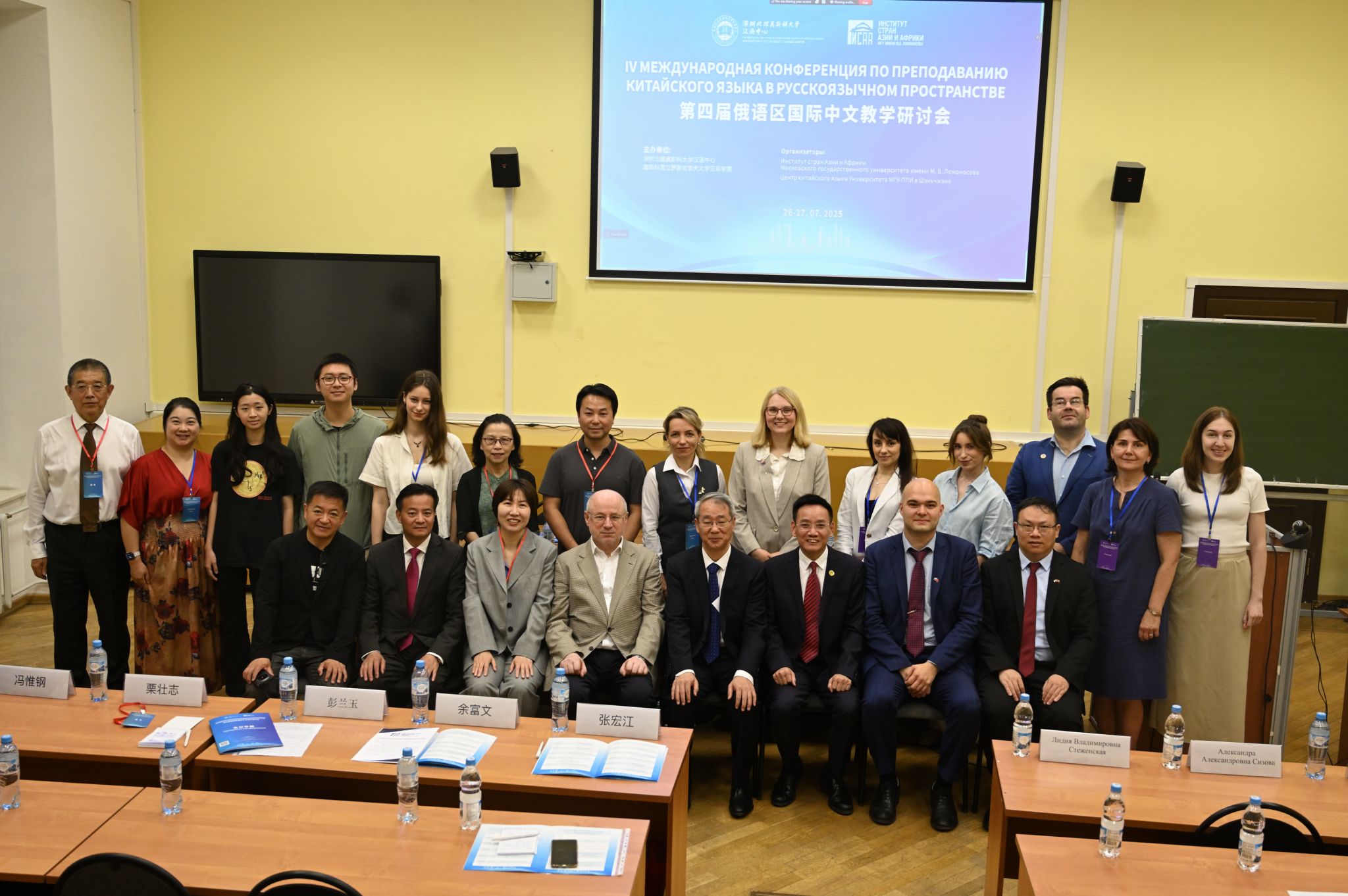
Also present at the ceremony were Ivanchenko Sergei, SMBU's first Vice Rector; Chen Chaofeng, SMBU's Deputy Secretary of the Party Committee and Secretary of the Discipline Inspection Commission; Wang Wei, Head of the Center for Chinese Language Studies at SMBU; Konstantin Baraboshkin, Head of the Department of Chinese Language and Literature at IAAS; Zhang Hongjiang, Third Secretary from the Education Office of the Chinese Embassy in Russia. IAAS Dean Ilya Maslov provided a video address extending his congratulations and wishes for the symposium's success.
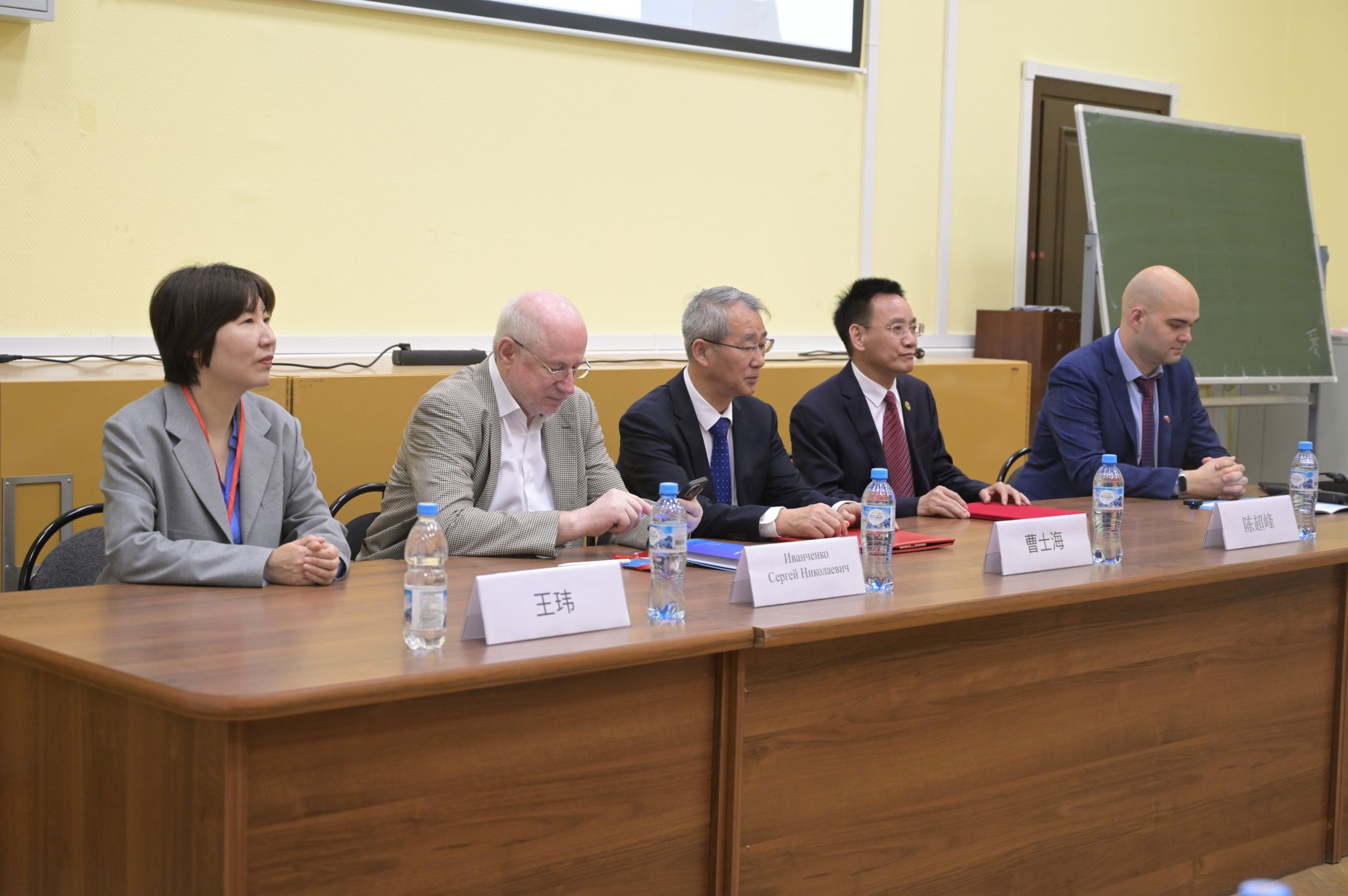
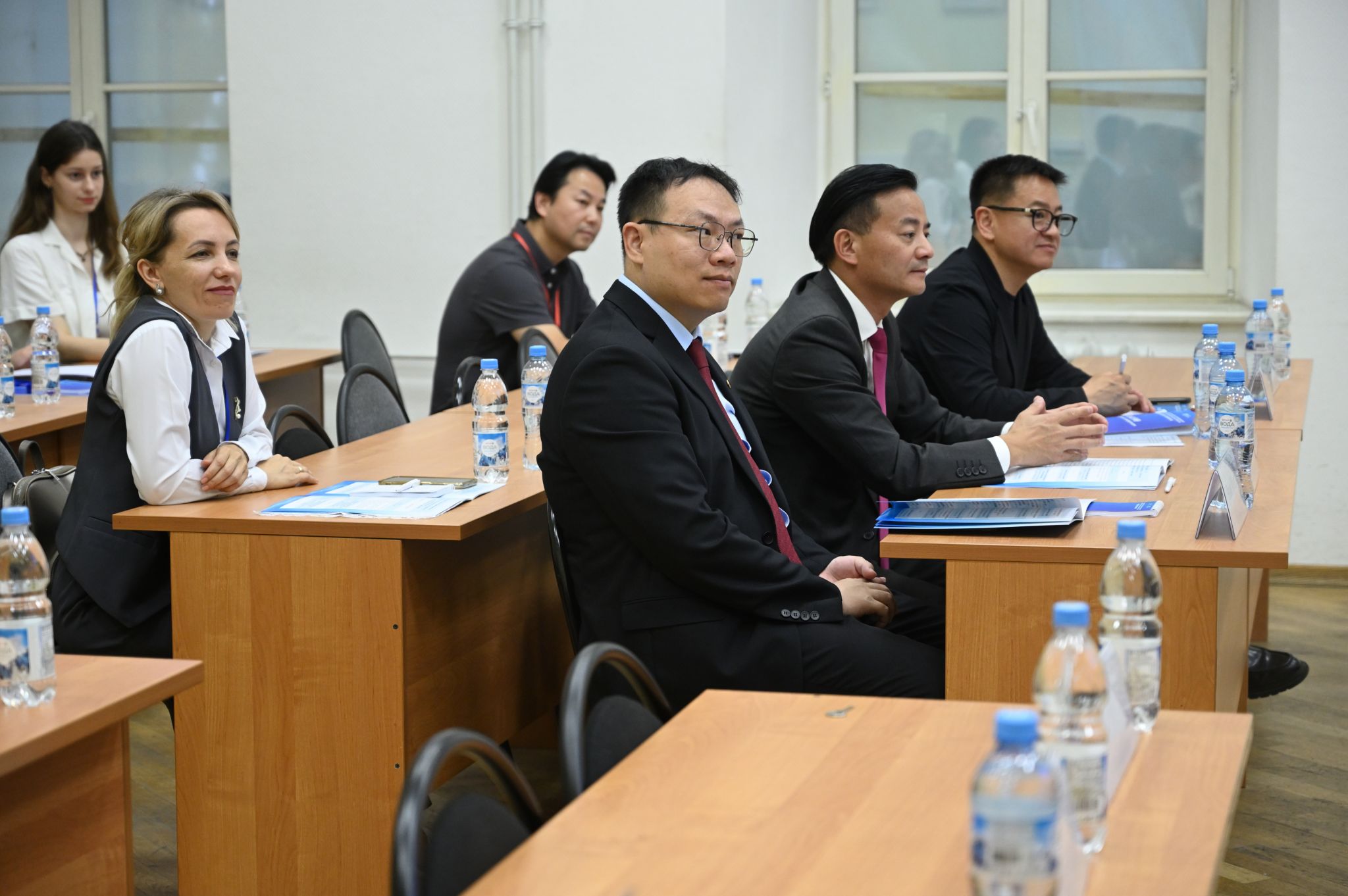
Cao Shihai, representing Zhang Hanhui, the Chinese Ambassador to Russia, extended his heartfelt congratulations on the successful convening of the symposium. He stated that the China-Russia comprehensive strategic partnership of coordination for the new era continues to develop. He remarked that SMBU, as a benchmark for Sino-Russian educational cooperation, holds significant demonstrative importance for deepening educational collaboration between the two countries. The symposium's convening carries great importance, he observed, as it not only provides a platform for cooperation between Chinese language educators in Russian-speaking regions but also undertakes the honorable mission of building consensus and promoting development.
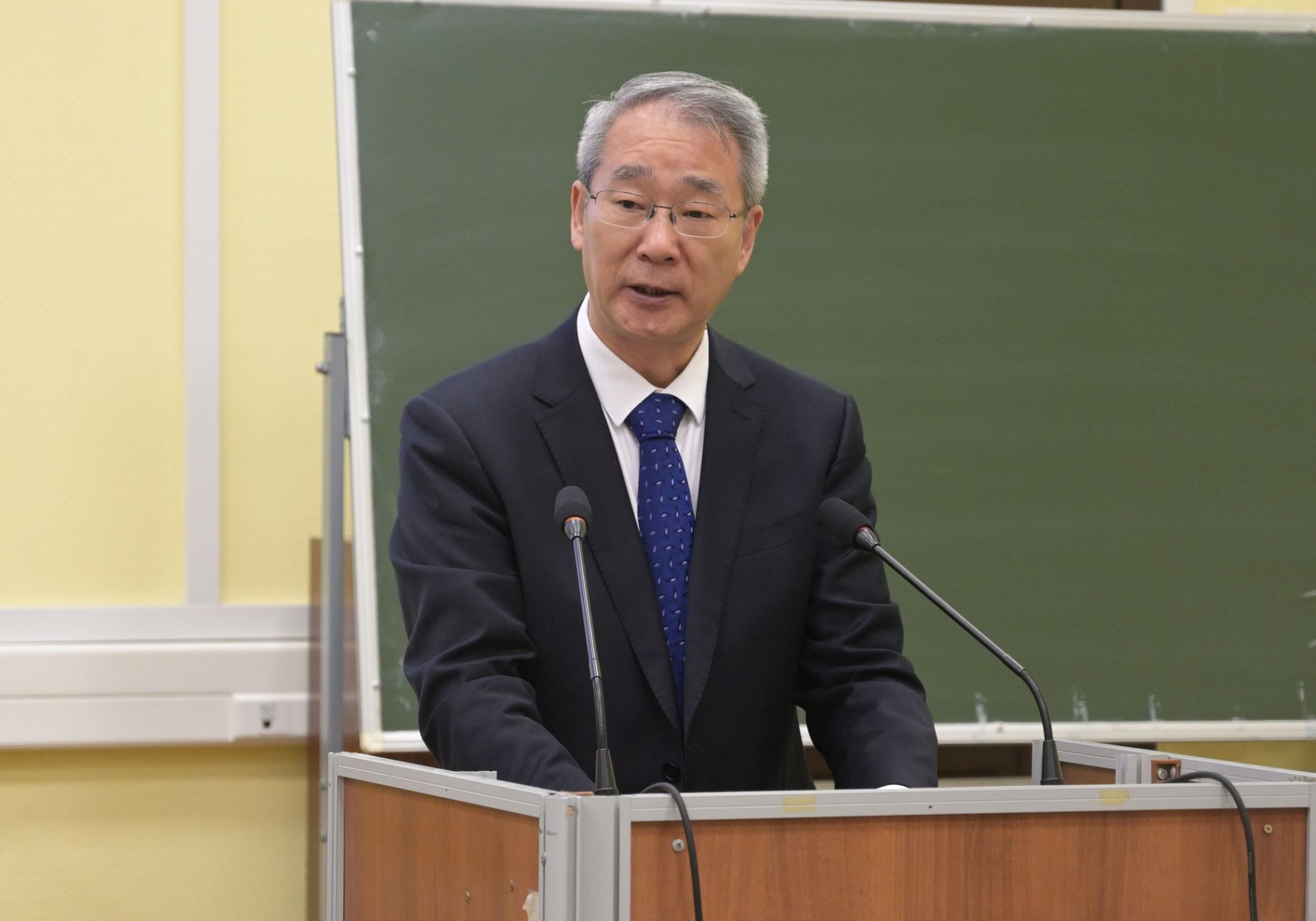
In his keynote address, Chen Chaofeng expressed that the co-hosting of this symposium by both universities is a vivid practice of exemplary Sino-Russian educational cooperation and a proactive response to the high-quality development of international Chinese language education. He emphasized that international Chinese language education is currently standing at a new historical starting point. Given Russia's strategic importance within the "Belt and Road" initiative, the localized development of Chinese language education is crucial, directly impacting educational outcomes for millions of Russian learners and influencing the depth and breadth of cultural exchange and mutual learning between China and Russia. He looked forward to further exchanges and consensus-building among participants, exploring effective pathways for building teaching faculties and innovating resources, thereby contributing to the construction of a Sino-Russian academic community.
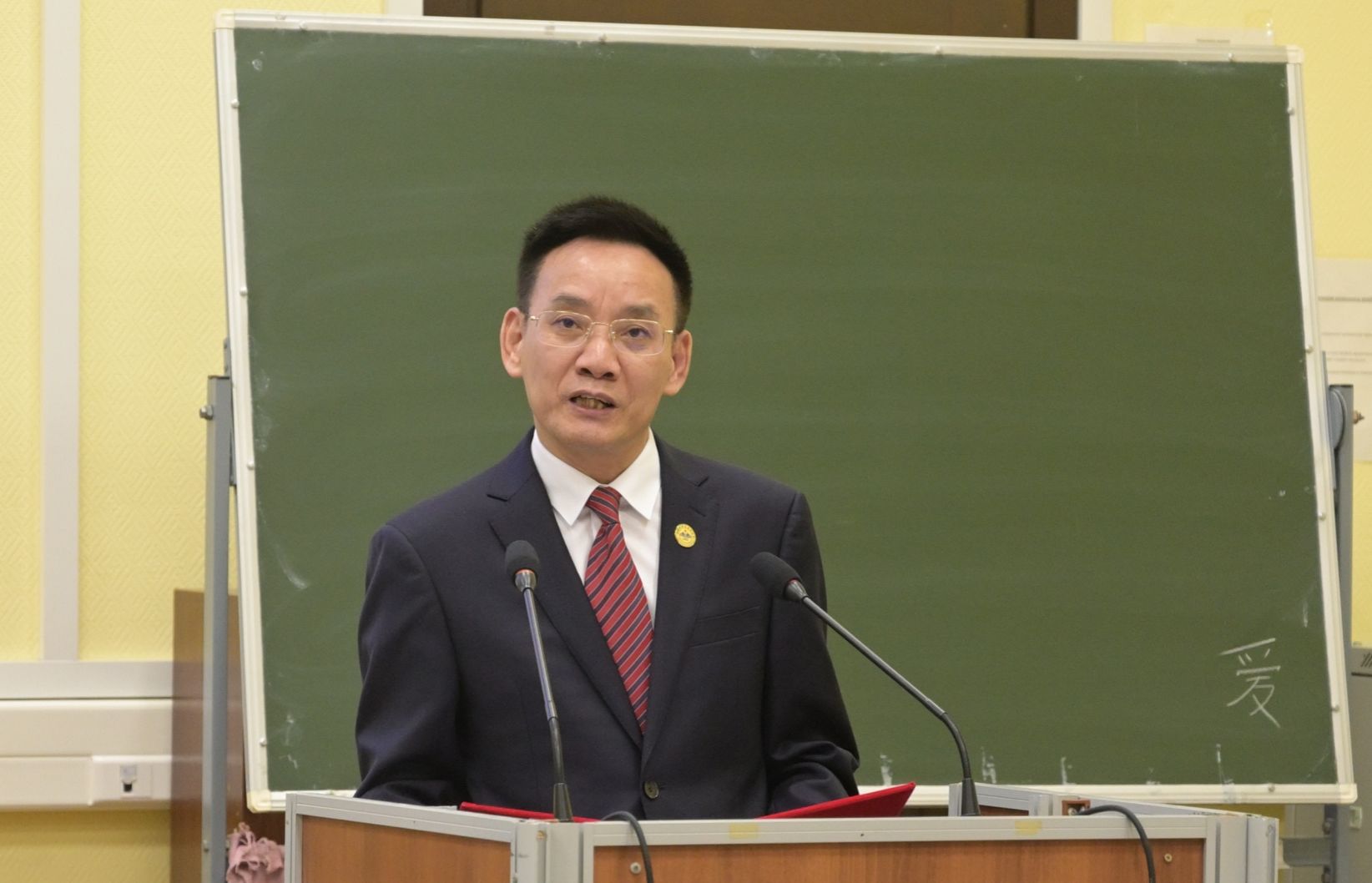
Dean Maslov identified that amidst the current fervor for learning Chinese in Russia, there is an urgent need for new Chinese teaching methodologies to meet the demands of efficient instruction and diverse learner groups. He noted that Russian Chinese language education currently faces challenges such as inconsistent professional standards in pedagogical systems, the need to balance cutting-edge technology with traditional teaching methods, and addressing specialized segmentation of Chinese language teaching. He conveyed his hope that participants would identify common strategies to address these issues and contribute to the development of new paradigms in Chinese language teaching research.

During the conference proceedings, SMBU and Beijing Chongxue Culture Development Co., Ltd. made a significant contribution by donating nine language books, including International Chinese Learner's Dictionary and Xi Jinping: The Governance of China, to IAAS.
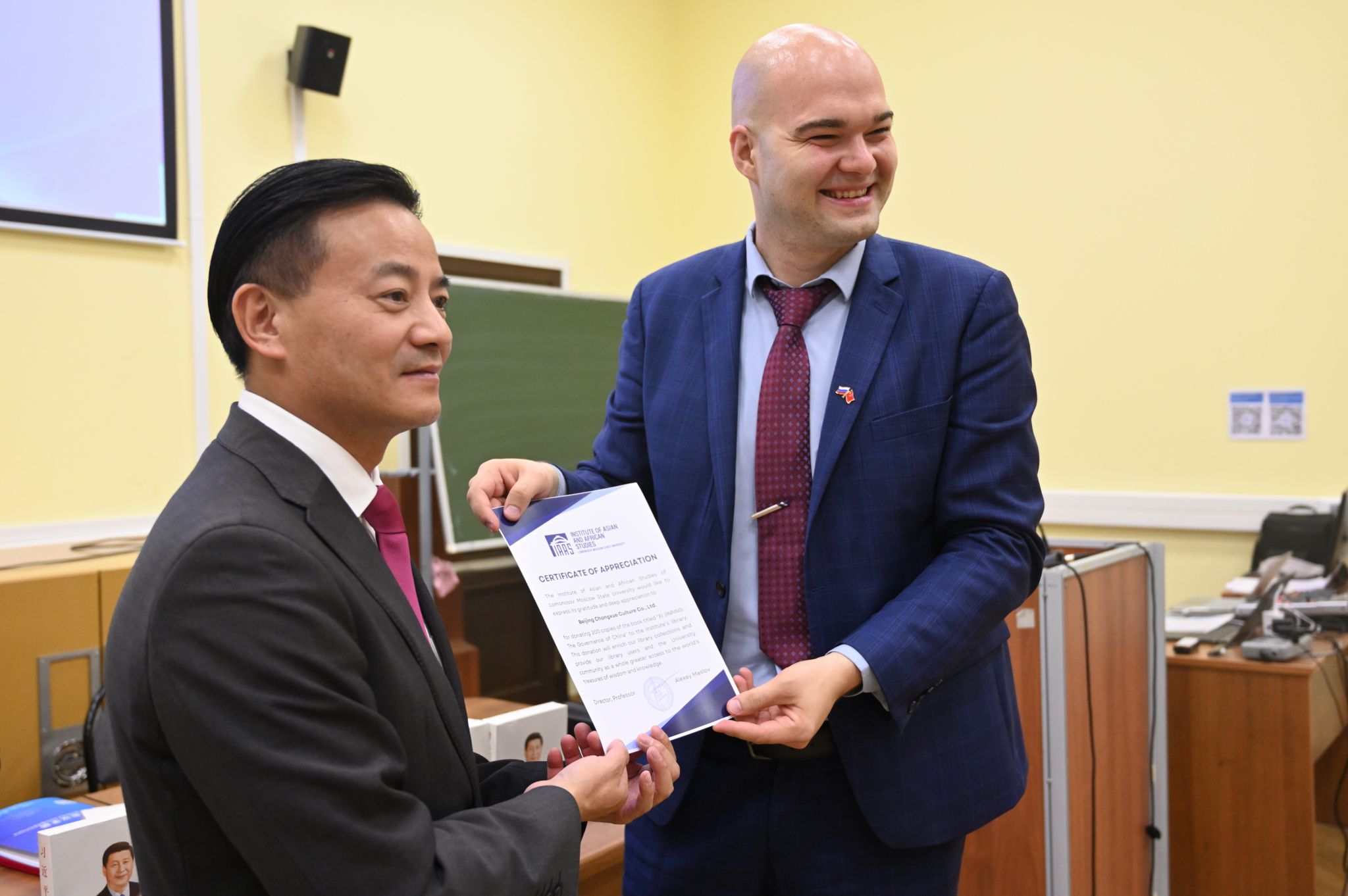

The symposium featured an impressive lineup of keynote speakers who addressed diverse topics: Wu Yongyi, Professor of East China Normal University; Xu Jie, Professor of University of Macau; Shi Jiawei, Professor of Beijing Language and Culture University; Peng Lanyu and Zhao Wei, Professors of SMBU; Huang Lei, Deputy General Manager of Chinese Testing International Education Technology (Beijing) Co., Ltd.; Stozhenskaya, Head of the Department of Asian Ethnic Literature at the Institute of Oriental Studies of the Russian Academy of Sciences; Ivchenko, Director of the Confucius Institute at Russian State University for the Humanities; and Ulyanov, Professor of the Gorky Institute of World Literature at the Russian Academy of Sciences. Presentation topics covered the study of speech act acquisition of Chinese L2 learners, the global spread of Chinese, domestic education of international Chinese teachers in China, the construction of international Chinese vocabulary resources, HSK test reform and test resource construction, sinology education in Russia, and both modern and ancient Chinese pedagogical approaches.
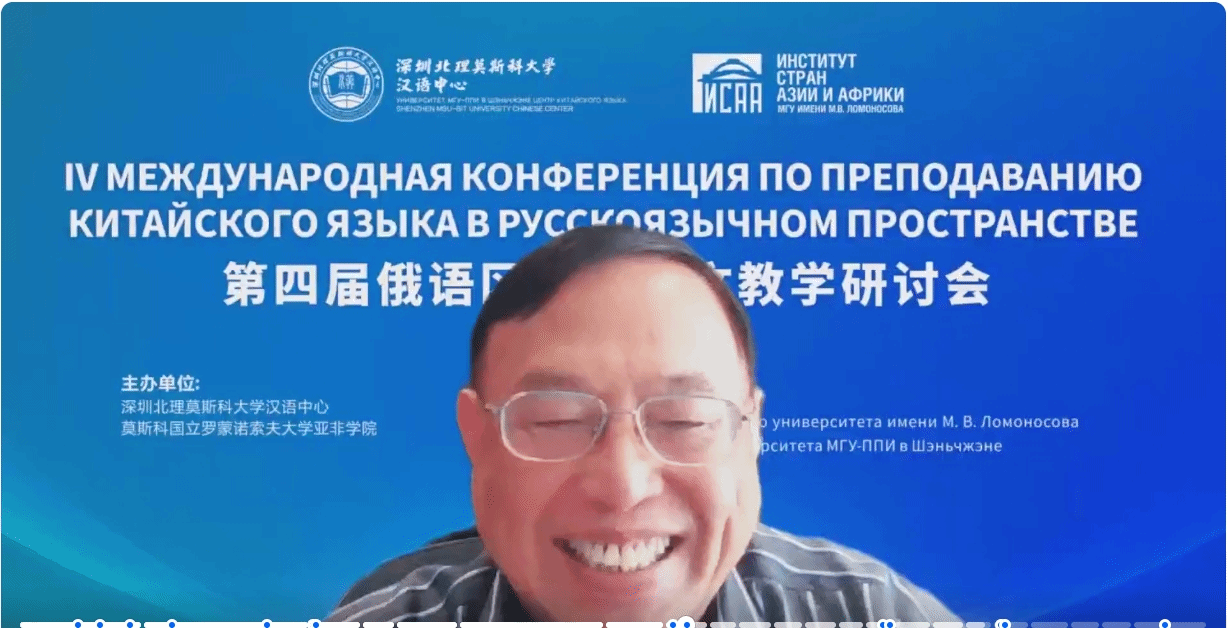
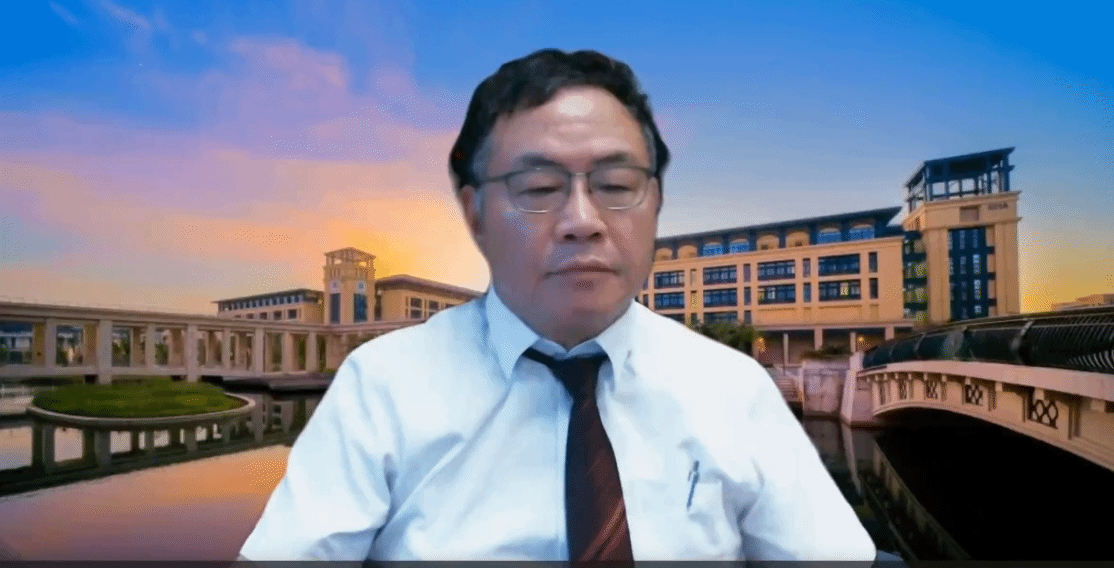
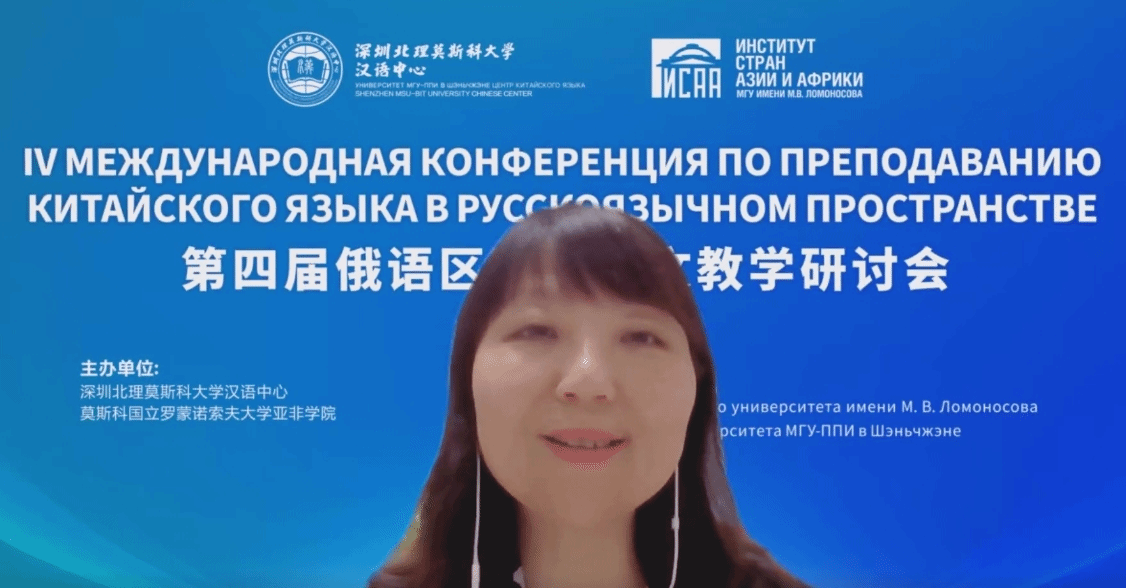
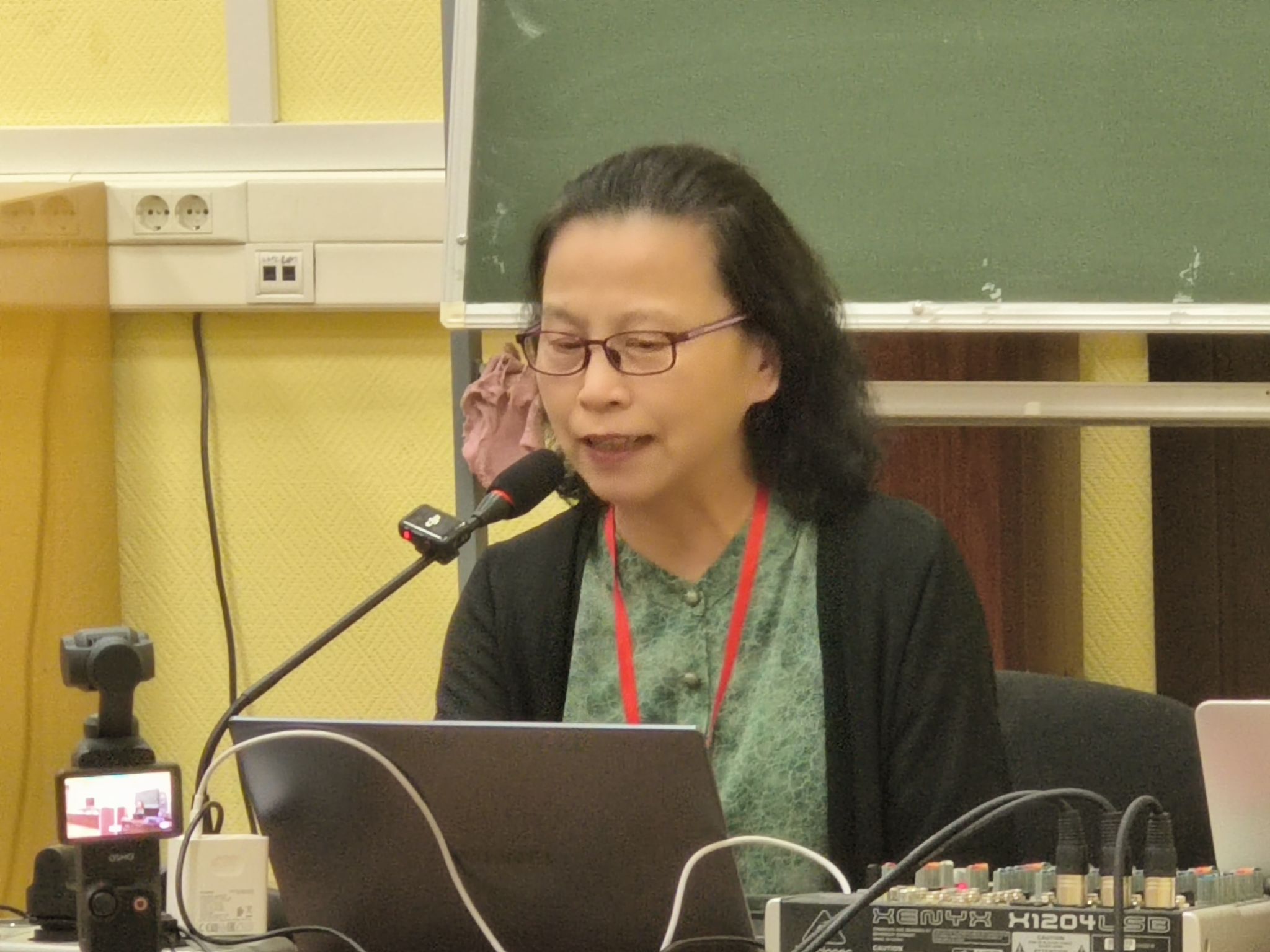
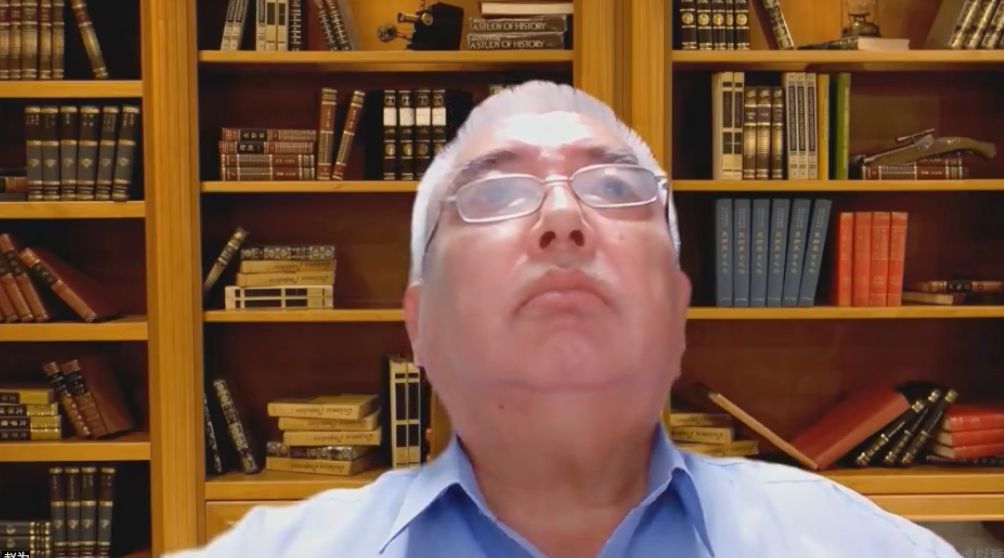
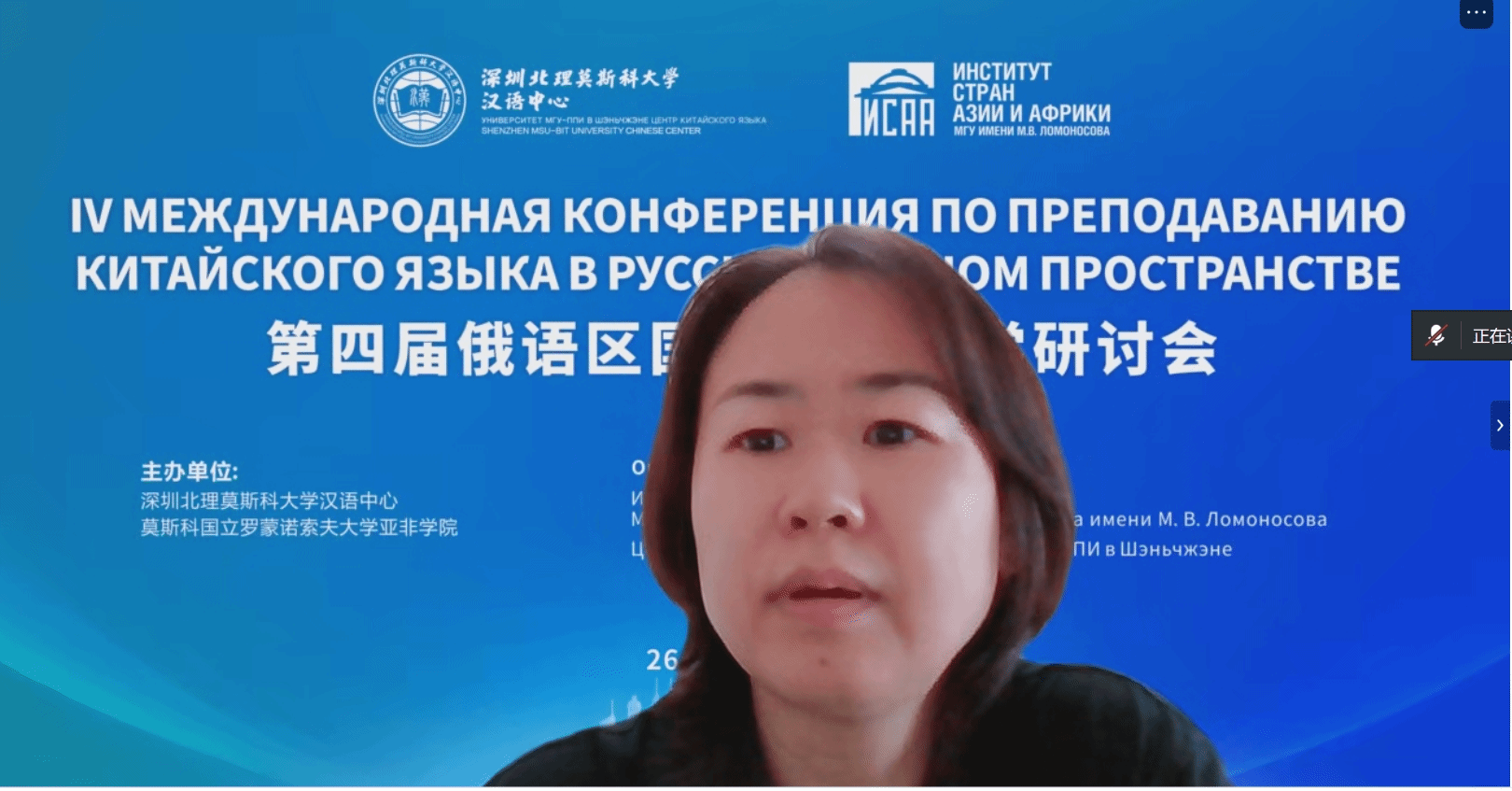
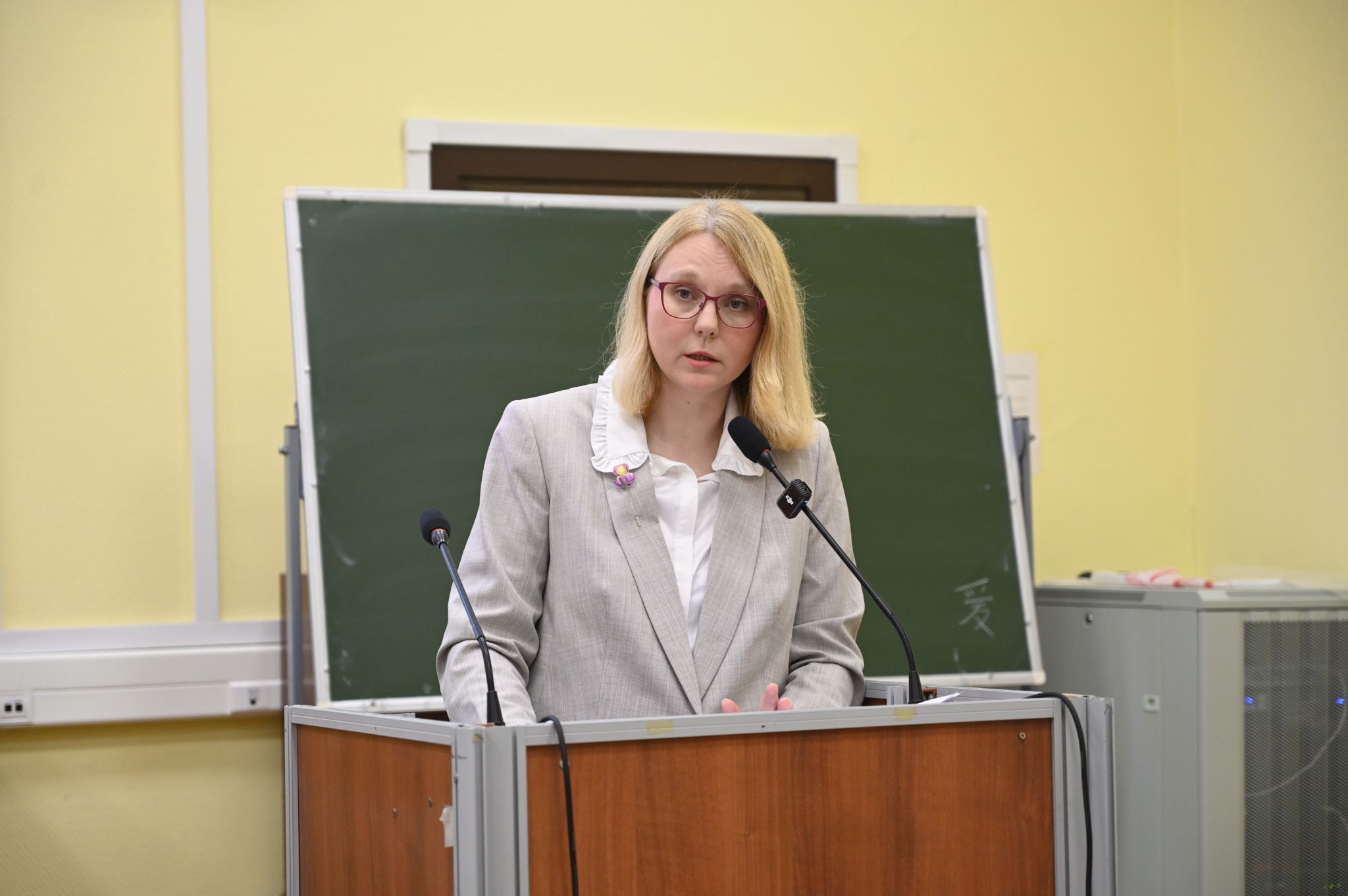
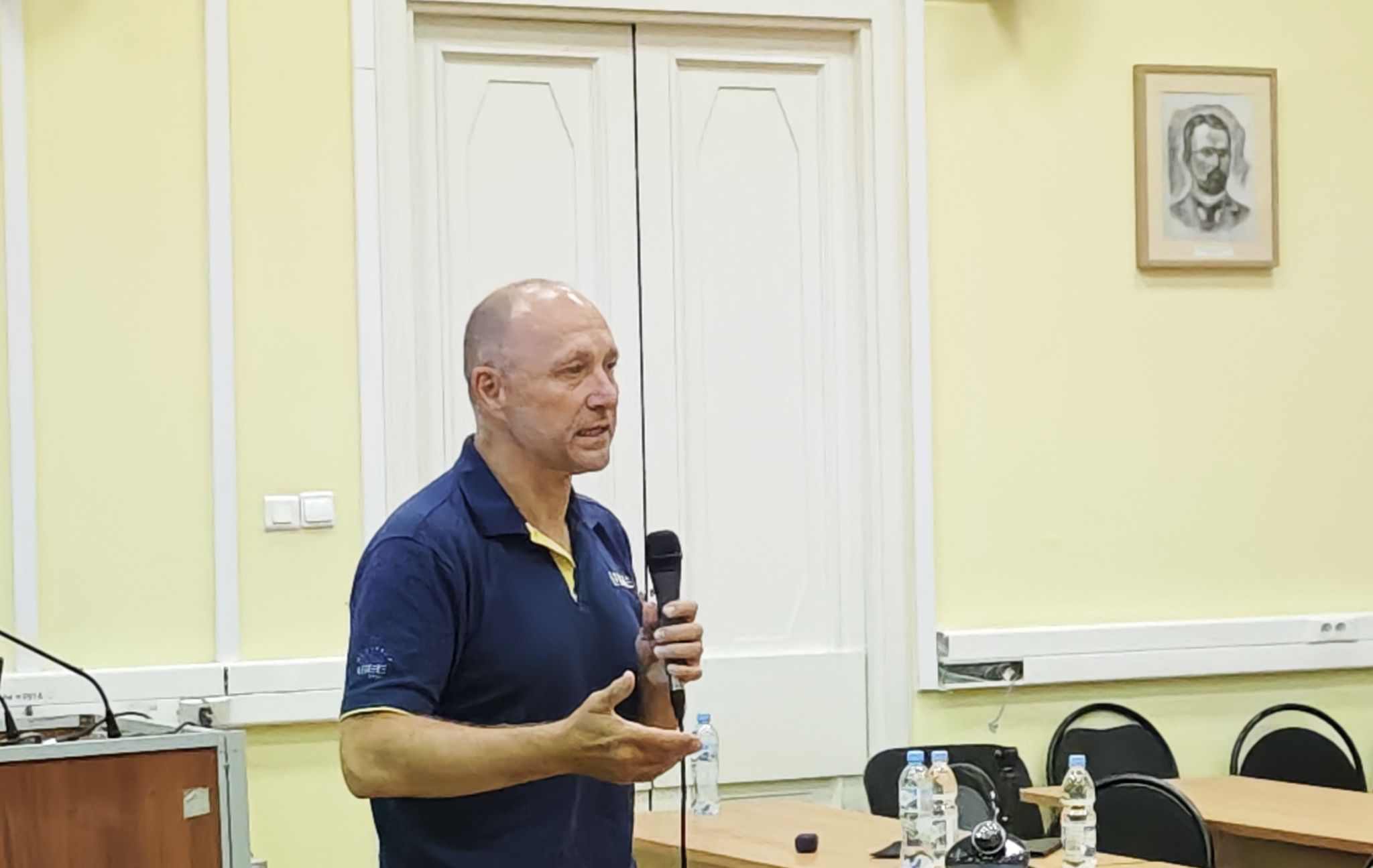
The parallel forums engaged 33 experts and scholars from China, Russia, Belarus, and other countries along three thematic tracks. They conducted synchronous online and offline discussions focusing on topics such as "Research on Localized Chinese Language Teaching in Russia," "Research on the Development of Curriculum Resources for Chinese Language Education in Russia," and "The Application of Digital Technology in International Chinese Language Teaching & The Role of Language Clubs and Cultural Activities in Chinese Language Pedagogy." These sessions facilitated the sharing of practical teaching experiences and scientific research findings.
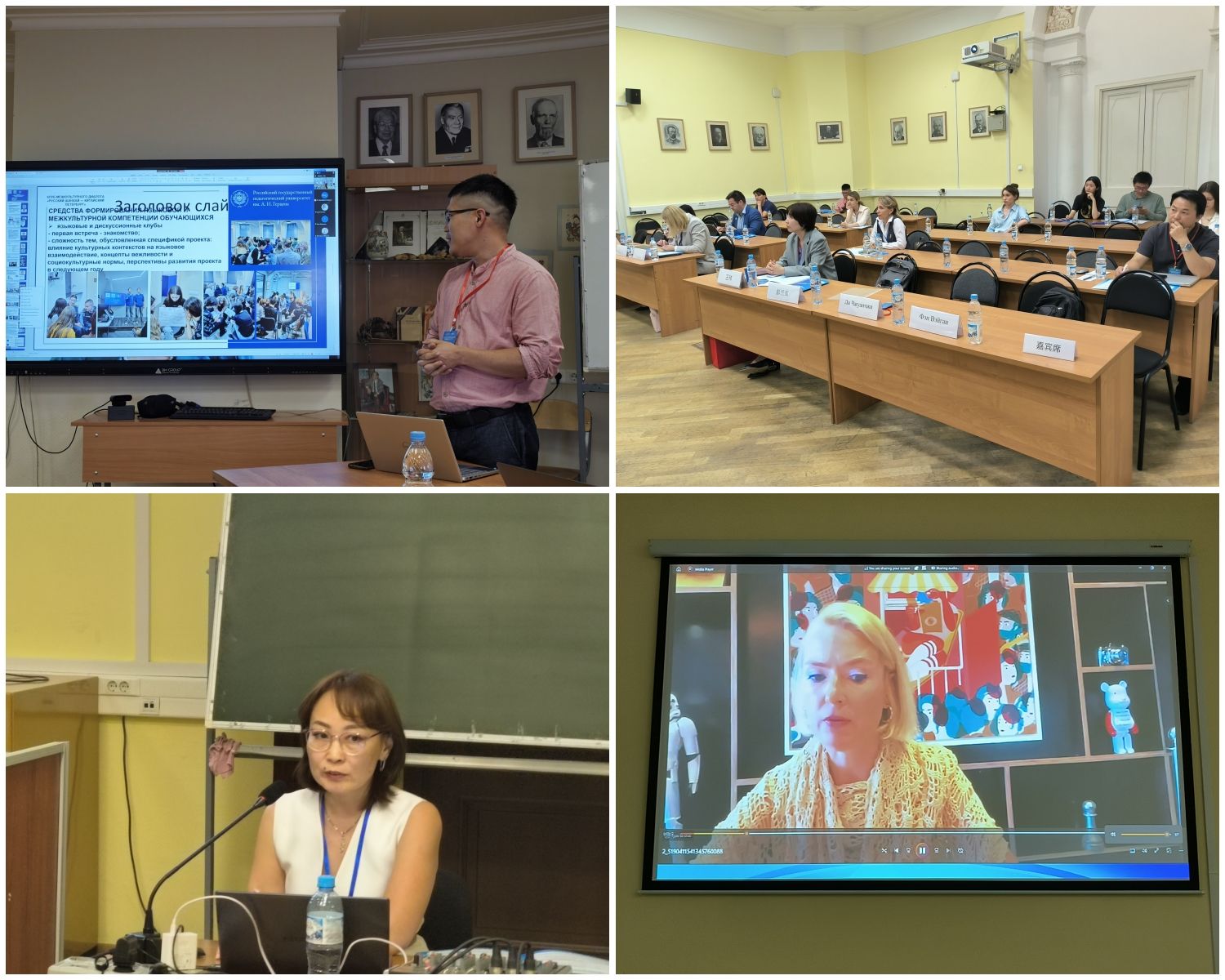
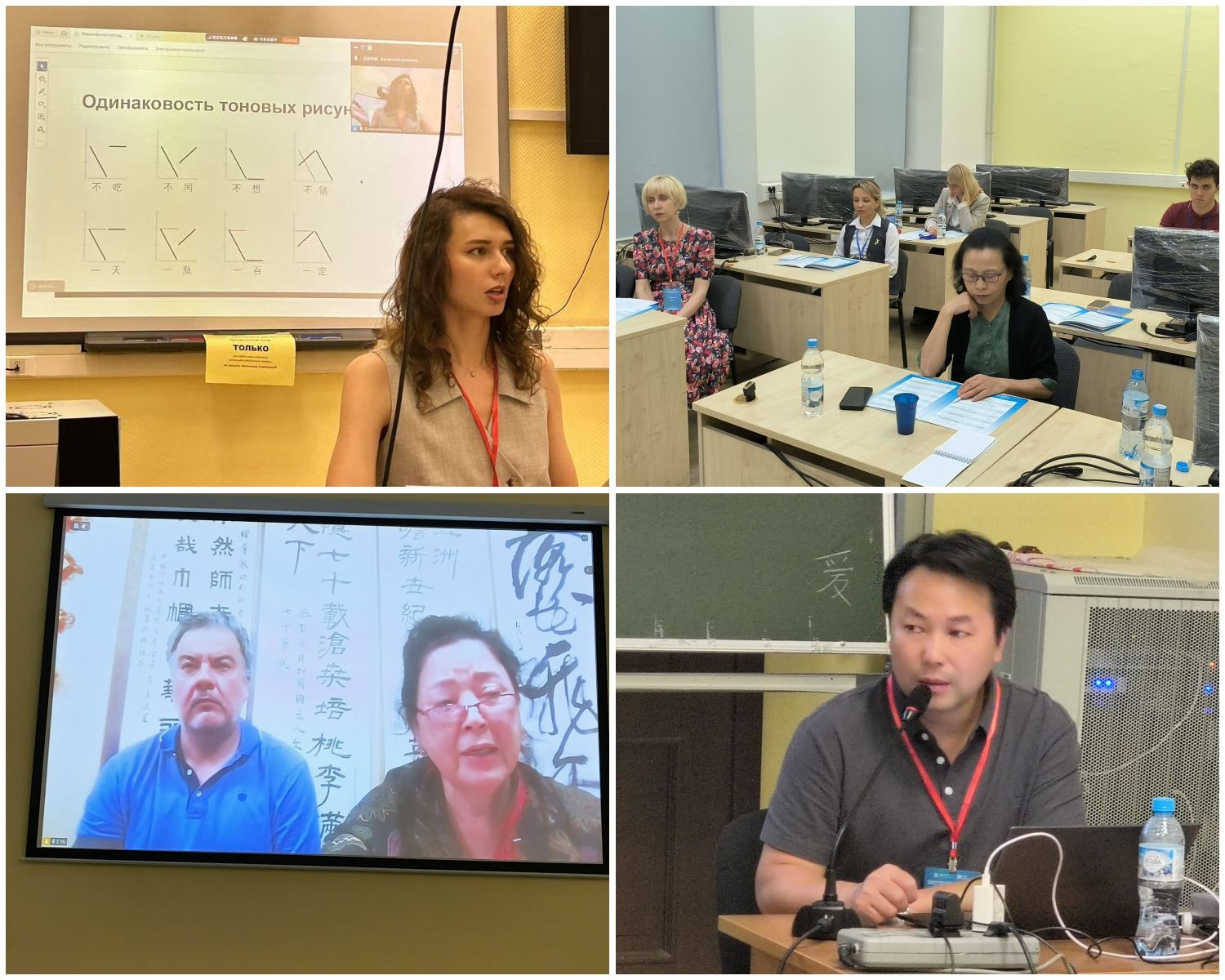
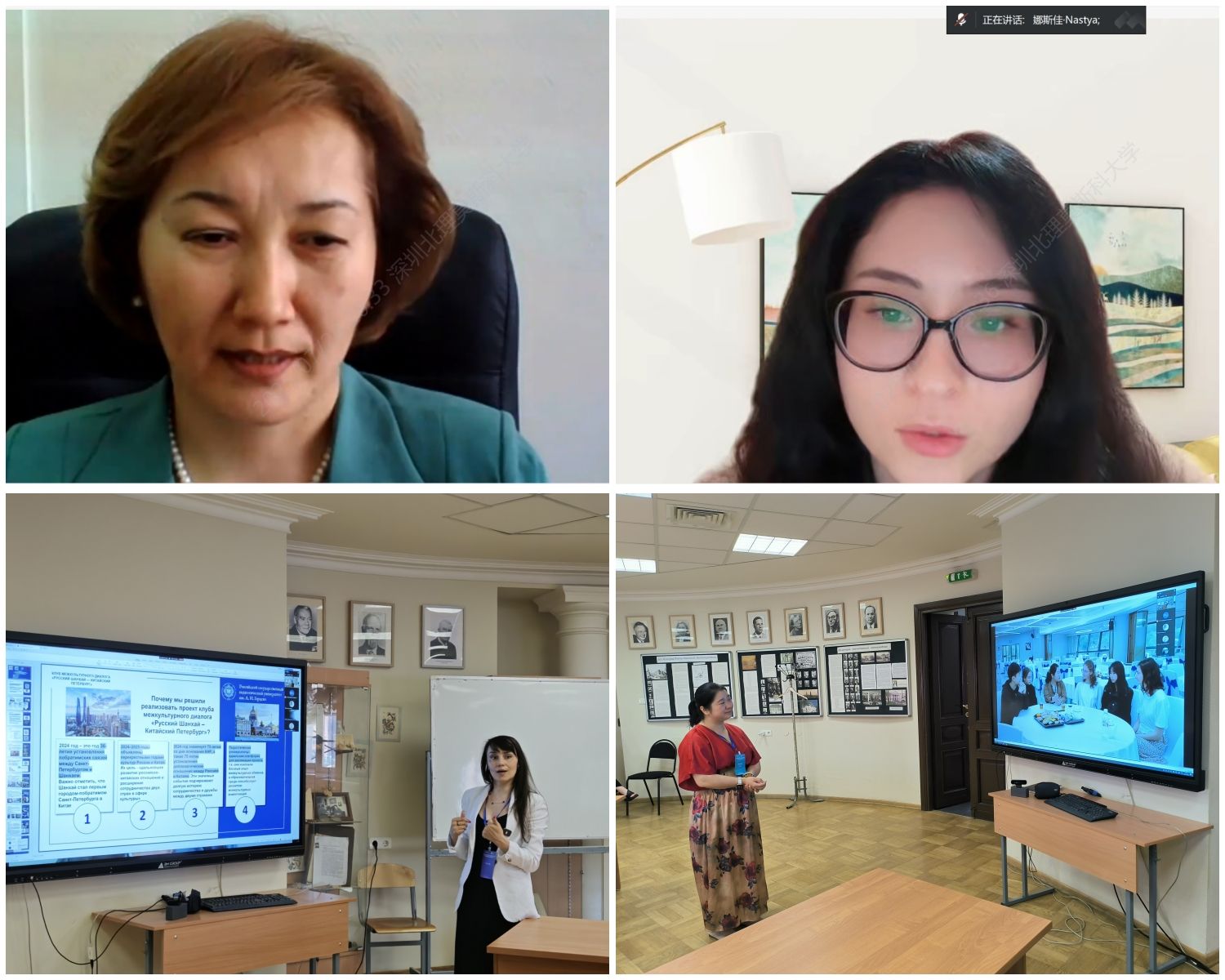
The symposium successfully concluded on July 27. In her closing remarks, Wang Wei reflected that since the inaugural All-Russian Symposium for Local Chinese Language Teachers in 2021, all four symposium iterations have cumulatively attracted over 800 participants while receiving widespread acclaim. She noted that this year's conference, held during the China-Russia Year of Culture, was grounded in academic exchange and dialogue on the localized development of Chinese language education in Russia, carrying significant importance for facilitating mutual learning between Chinese and Russian civilizations.
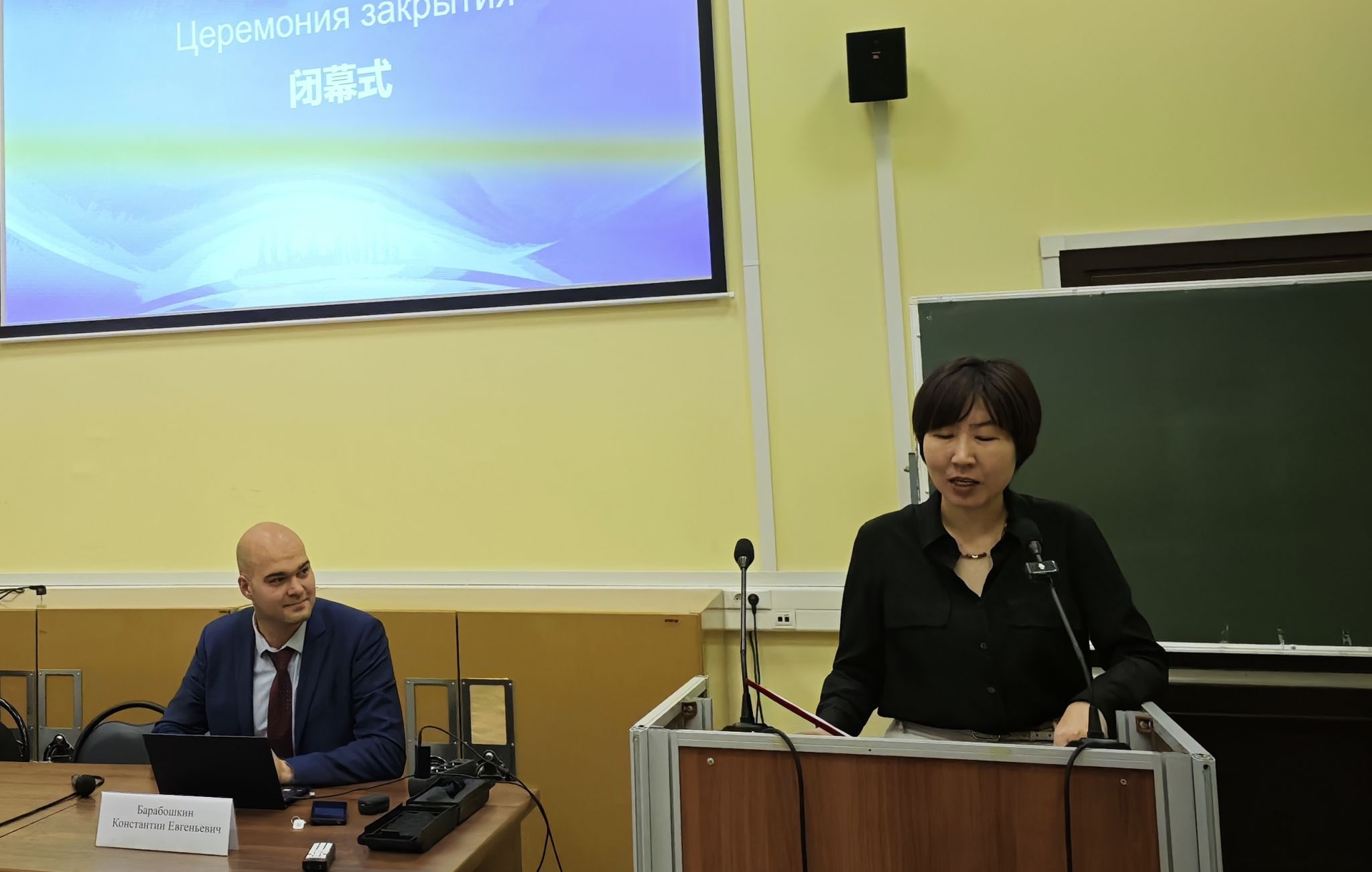
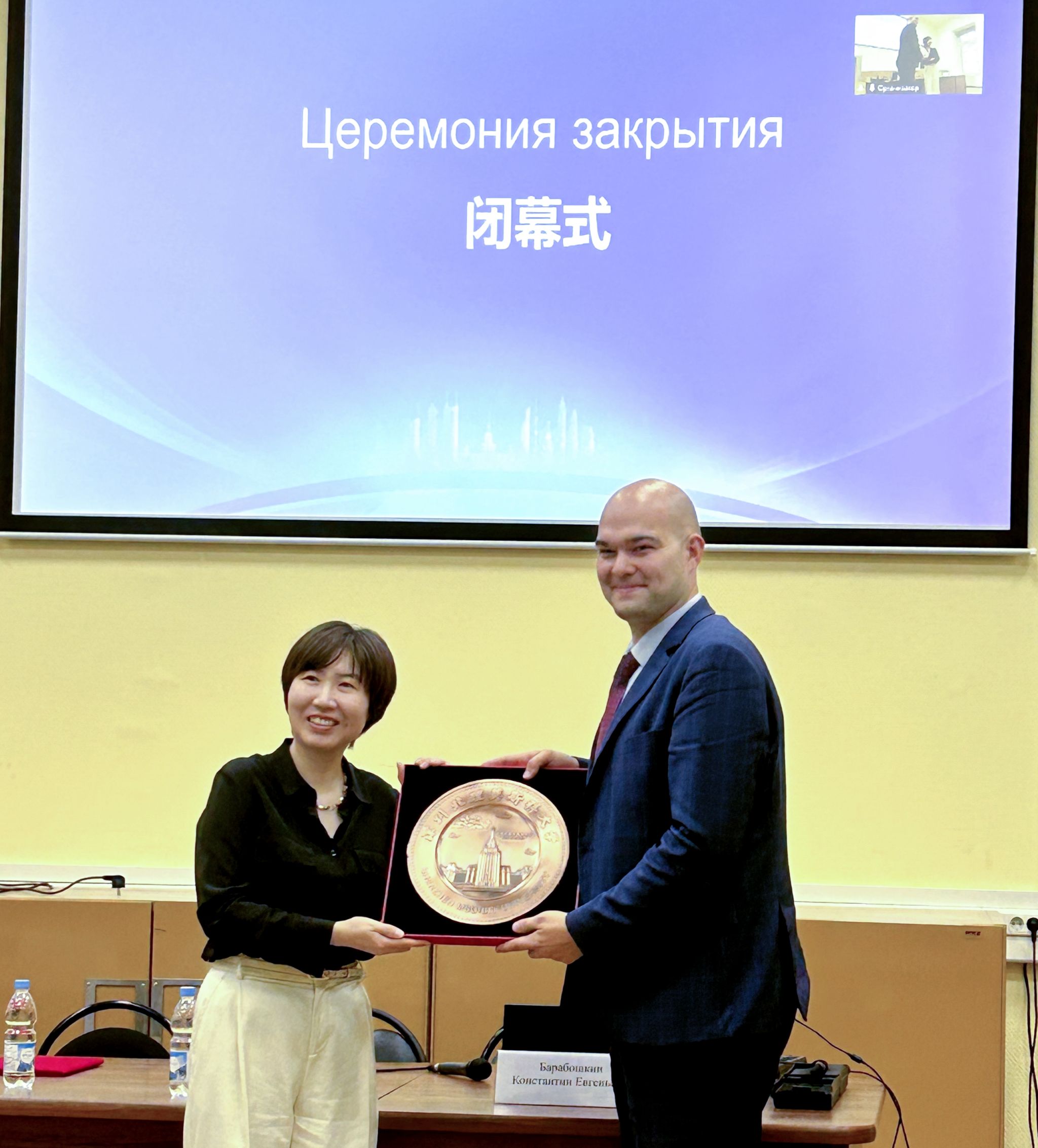
During the visit, Chen Chaofeng also led the delegation to Moscow City University. They held productive discussions with Silivanov, Vice President, Bokova, Vice Dean of the School of Foreign Languages, and other departmental leaders regarding future cooperation in developing high-level Chinese language talents and reciprocal teacher exchanges. During their visit to Lomonosov Moscow State University (LMSU), Chen Chaofeng met with Academician Stepan Kalmykov, Chairman of the SMBU Board of Directors, and Academician Mikhail Kirpichnikov, a member of the SMBU Board of Directors. The delegation also toured the LMSU Botanical Garden and the Biological Observation Station.
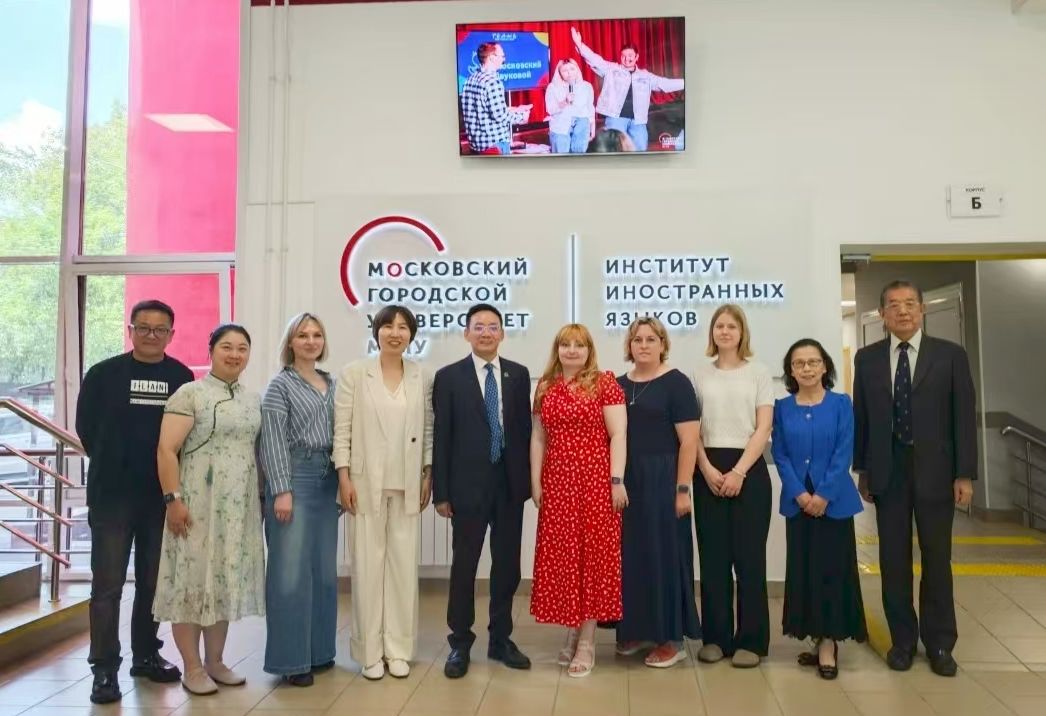
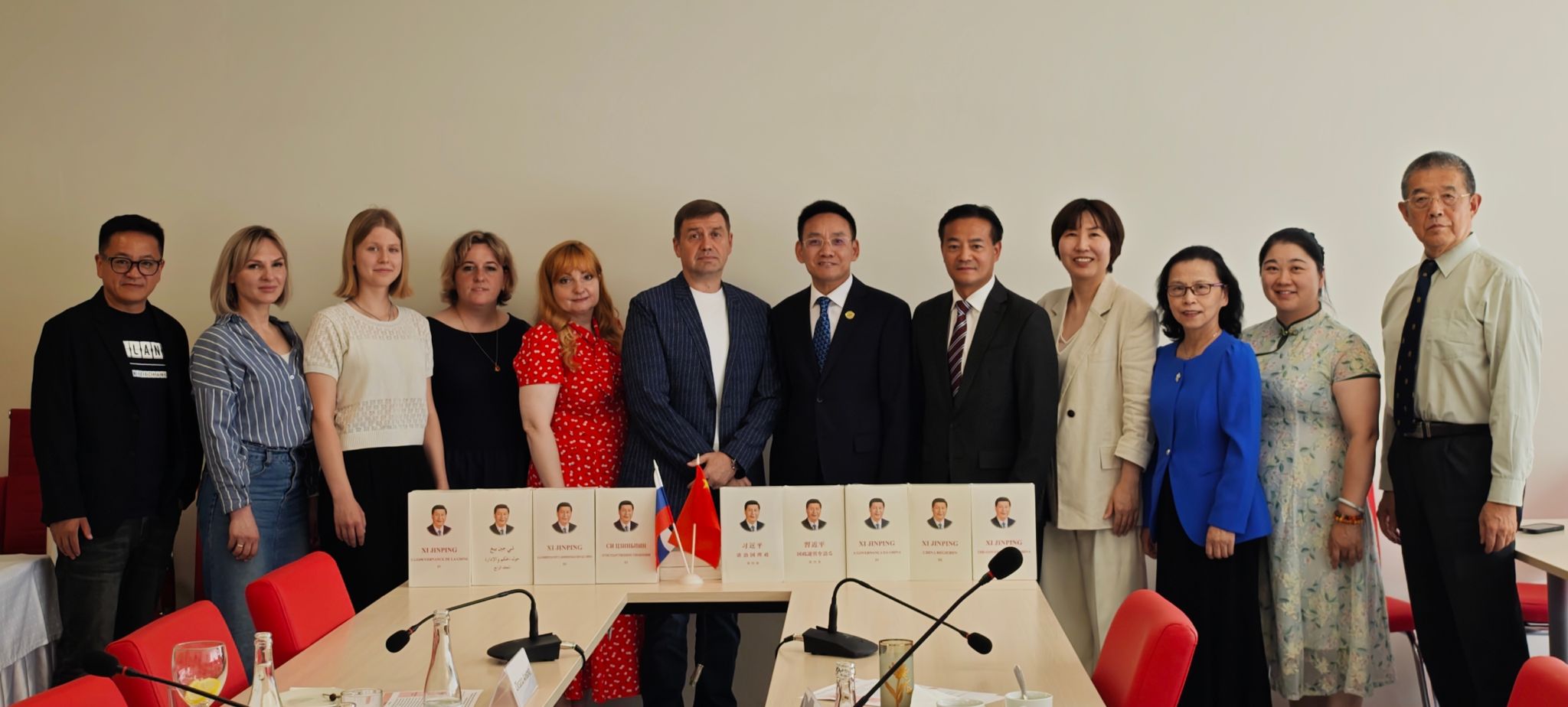
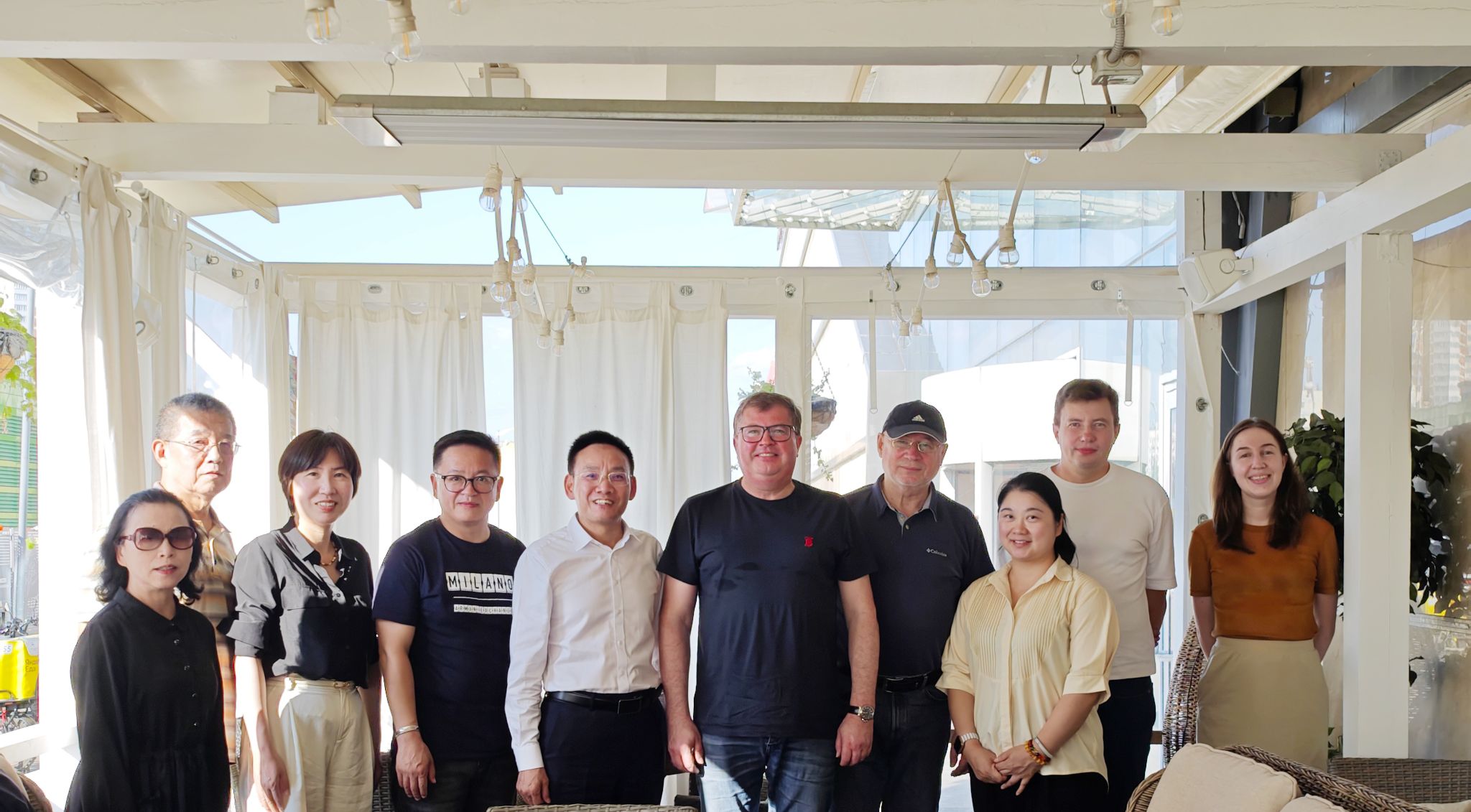
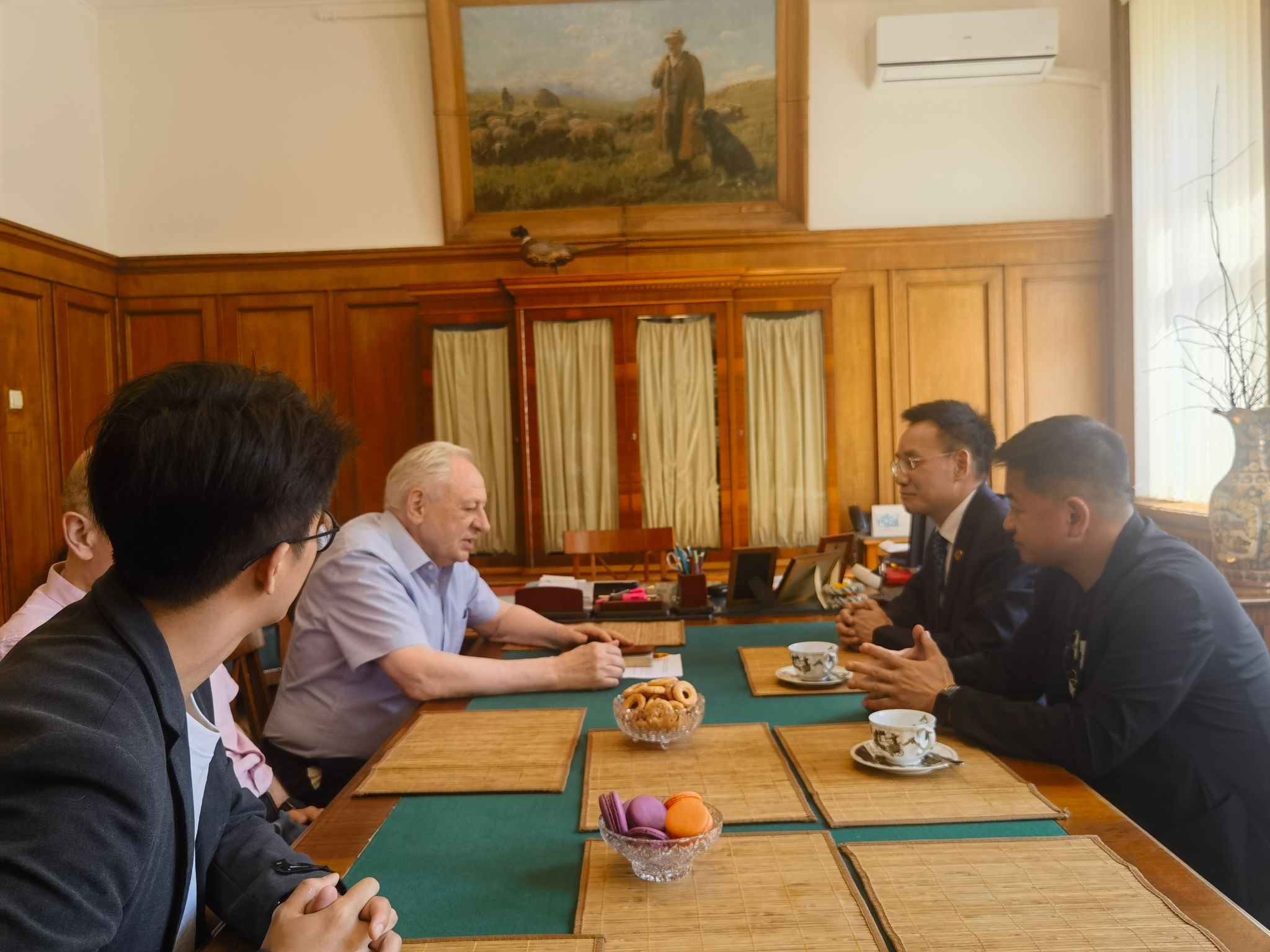
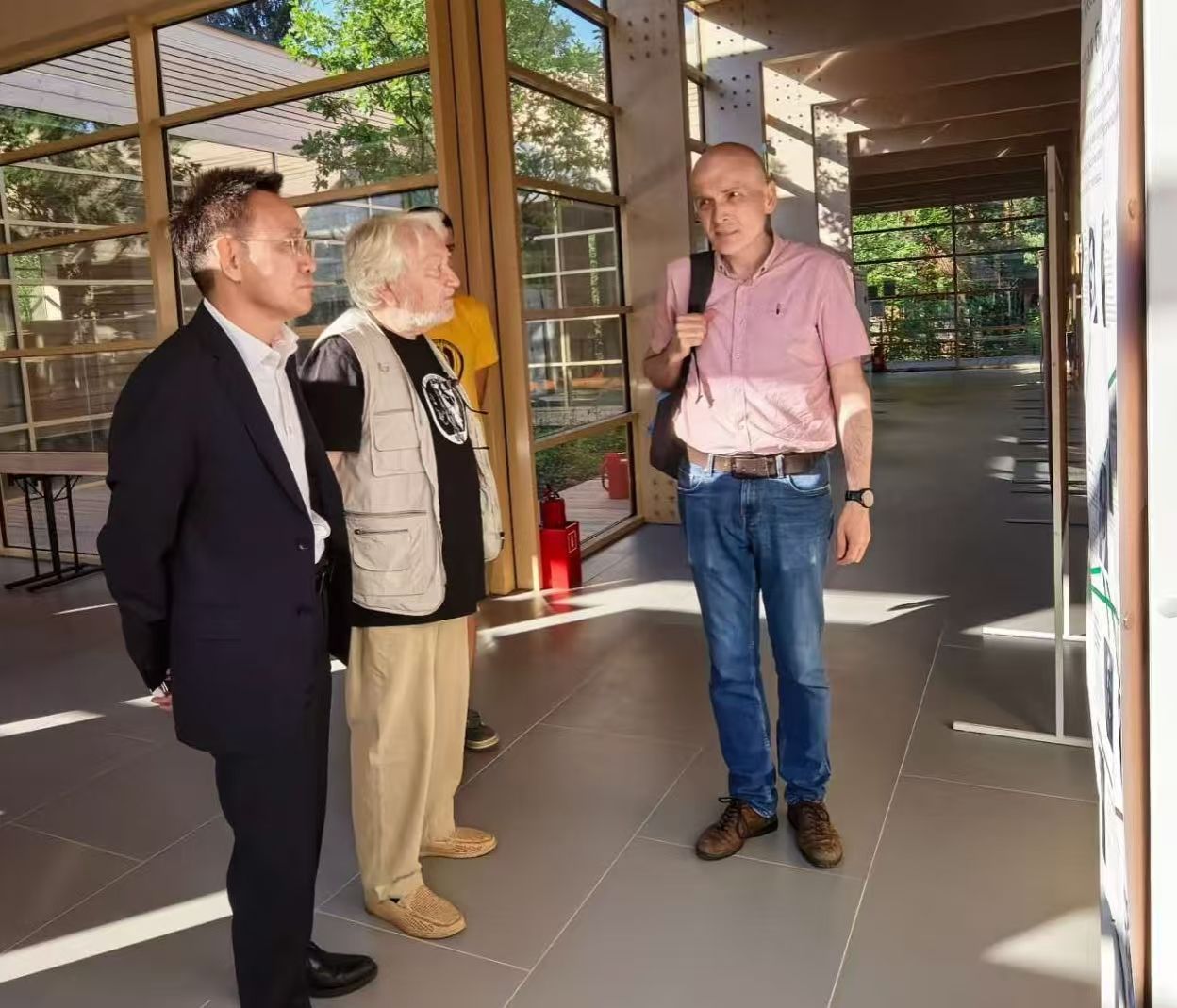
This diplomatic mission yielded substantial outcomes. The successful execution of the 4th International Chinese Language Education Symposium for Russian-Speaking Regions represents both a concrete example of Sino-Russian educational cooperation and a proactive response to the high-quality development of international Chinese language education. SMBU will continue to shoulder the responsibility of promoting mutual civilization learning and talent co-cultivation, working diligently to advance Sino-Russian educational cooperation toward new heights.